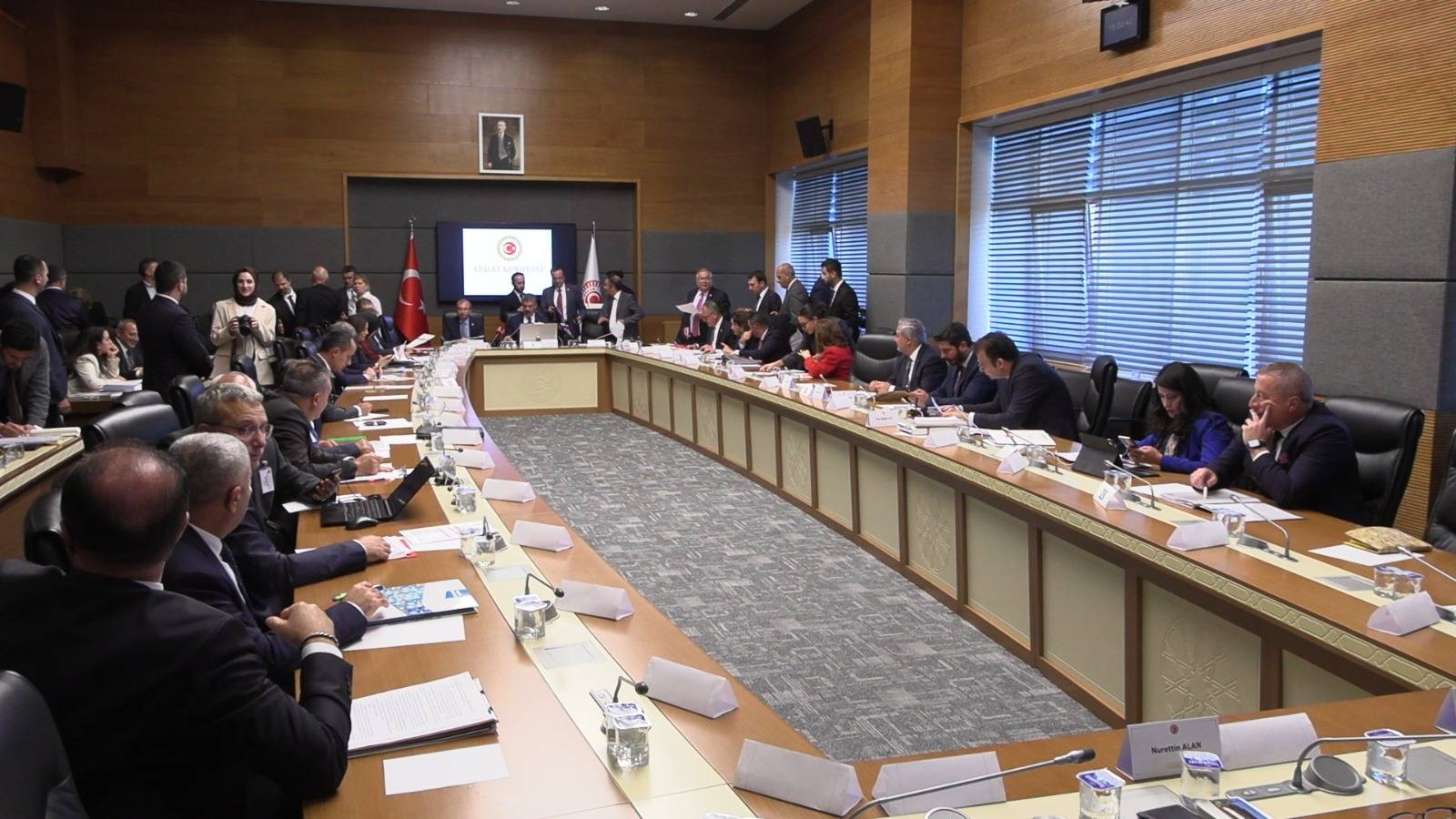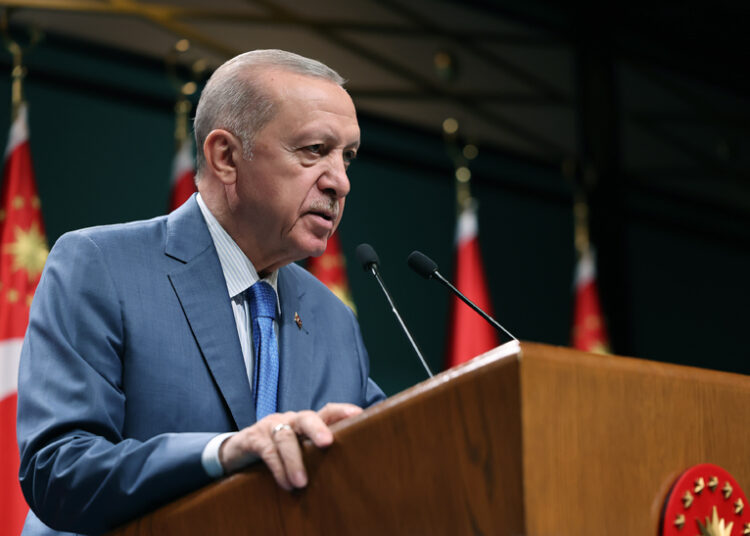Levent Kenez/Stockholm
The Turkish government pushed forward a controversial amendment on Wednesday concerning espionage, which was initially shelved in May following a public backlash. The amendment has now passed through a parliamentary committee, the first step toward its potential enactment into law.
According to the proposed legislation, changes to the Turkish Penal Code (TCK) will introduce a new offense related to espionage and spying. A clause will be added to the section on “Crimes Against State Secrets and Espionage,” which would criminalize actions carried out in line with the strategic interests or directives of a foreign state or organization that harm state security or political interests, both domestic and foreign. Those convicted under this clause could face sentences ranging from three to seven years in prison. If the offense occurs during wartime or in situations that jeopardize military operations, the penalty could increase to between eight and 12 years. Additionally, if the crime is committed by individuals working in key state institutions related to national security or defense, the punishment will be doubled. Prosecution under this amendment will require the approval of the justice minister, making it subject to executive discretion.
This move is expected to reignite debates on national security and civil liberties since critics have expressed concern over the potential misuse of the amendment to stifle dissent. According to earlier reports in the pro-government media, “agents of influence,” previously absent from the TCK, would be added to the definitions of “espionage” and “spying” in the code. However, the term “agents of influence” does not appear in the new proposal.
The amendment, introduced by President Recep Tayyip Erdogan’s ruling party in parliament on October 18 and unusually fast-tracked through the Justice Committee on October 23, cites its main justification as improving the fight against espionage. According to the bill’s rationale, “A new offense is being introduced into the Turkish Penal Code to more effectively combat espionage activities. The proposed regulation imposes penalties for committing crimes in line with the strategic interests or directives of a foreign state or organization that act against the security of the state or its domestic or foreign political interests.”
The Erdogan government’s action could also be seen as an attempt to exploit public perceptions of espionage and informants to narrow the space for dissent.
The amendment was discussed during the Justice Committee meeting chaired by Cüneyt Yüksel, a deputy from the ruling Justice and Development Party (AKP) and the brother of Turkey’s pro-Erdogan judge at the European Court of Human Rights. Murat Emir, an MP from the main opposition Republican People’s Party (CHP), voiced strong criticism, expressing concerns over the potential misuse of the new law. He argued that the vague nature of the offense opens the door for abuse, stating, “How will this be applied in our system? It’s entirely subjective, depending on how a judge or prosecutor interprets it — or more frankly, based on the political stance of the government. We all know that the judiciary is essentially controlled by the ruling party, which in turn shapes the higher courts. So, whatever the government thinks, says or wants — whether it wants to silence someone, intimidate someone or arrest or detain someone — this law will serve as a tool for that.”
Emir went on to point out the ambiguous nature of the crime as defined, saying, “Anyone can be accused of this crime because it’s so vaguely worded. While we can’t predict how court rulings will evolve or how the judiciary will act, it’s clear to anyone familiar with the realities of Turkey that if this law passes, it will be used as a tool by overzealous prosecutors to justify detentions.”
During the session Tufan Taşkın Özer, another CHP member, expressed serious concerns about the potential implications of the proposed amendment. He warned that it would serve as a new tool for oppression and intimidation, particularly against opposition groups. Özer emphasized that the law could impose significant restrictions on press freedom, especially for foreign media organizations. “There is no doubt that journalists working to inform the public will be labeled as ‘spies.’ Under existing regulations, those who do not align with the ruling AKP were already being declared terrorists; under this new framework, you will simply label those you can’t call terrorists as spies,” he said.
At the committee meeting, representatives of the ruling party defended the amendment, arguing that similar laws exist in many countries, including the United States, and denying claims that it is an attempt to restrict freedoms in Turkey.

The ruling party’s ally, the Nationalist Movement Party (MHP), has been a strong advocate for the legislative changes. The MHP is pushing for increased oversight and control over foundations and associations that receive international funds and grants, calling for stricter measures in this area.
The amendment proposed by the Turkish government shares similar intentions with Russia’s foreign agent law, which Russian President Vladimir Putin had utilized to imprison or intimidate international journalists who refused to register as foreign agents. Furthermore, Georgia enacted a foreign agent law akin to Russia’s in May despite the European Union having cautioned Georgia that the adoption of such a law would hinder progress toward EU membership. On May 1 thousands of Georgians, including many young people, staged a large protest against the law in the capital city of Tbilisi. Tens of thousands of Georgians took to the streets to oppose the legislation, fearing it would undermine Georgia’s aspirations for Euro-Atlantic integration. However, despite being vetoed by the president on May 28, the law was reintroduced in parliament and eventually passed. After being signed by Speaker of Parliament Shalva Papuashvili, it was published in the official gazette, officially coming into effect.
In September 2022 the Turkish parliament introduced a new social media law, labeled by the government as a measure against disinformation but criticized by the opposition as a censorship law. The law, amending the TCK, introduced the crime of “publicly disseminating misleading information,” punishable by up to three years in prison, with harsher penalties for offenses linked to terrorism.
With the new articles added to the Turkish Penal Code, the crime of “publicly disseminating misleading information” was defined for the first time. A person who spreads disinformation is defined as “a person who publicly disseminates false information about the internal and external security, public order or general health of the country in a way that is suitable for disturbing the public peace, with the sole aim of creating anxiety, fear or panic among the public.” Those who commit this crime will be sentenced to imprisonment of between one and three years. If the accused hides it or commits it within the framework of terrorist organization activity, the penalty will be increased by half.
According to the “Freedom on the Net 2024: The Struggle for Trust Online” report released on October 22 by Freedom House, Turkey remains categorized as “not free” regarding internet freedom. The report highlights the increasing control of President Erdogan’s government over the digital sphere, particularly through regulations on social media platforms. There has been a notable rise in censorship, surveillance and the restriction of online speech, making it difficult for citizens, particularly journalists and dissidents, to freely express opinions.
On Monday access to the X accounts of dozens of journalists and social media users, many of whom are living in exile abroad, was blocked.
Text of the amendment:












